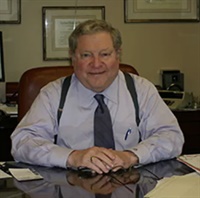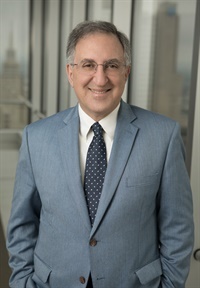ACPEN Signature: 2020 Real Estate Taxation after Tax Reform
Total Credits: 8 including 8 Taxes - Technical
- Average Rating:
- 36
- Categories:
- ACPEN Signature | Tax | IRS Approved
- Speakers:
- C. Clinton Davis, CPA, JD | James A. Smith, CPA, CGMA | Brian Dethrow, JD | Charles D. Pulman, CPA, J.D., LL.M | Shane Elrod, CPA
- Course Levels:
- Update
- Duration:
- 8 Hours
Description
Few areas have been affected by tax reform more than real estate, and few areas have more unresolved questions after tax reform. From the proper application of the 199A rules to commercial rental real estate to complex rules on the interest expense limitation to changes in the rules for investment expenses, practitioners have more than their fair share of unresolved issues. Even formerly straight forward issues like depreciation versus expensing require added attention and thought. The new qualified opportunity zone rules are complex and challenging although the rewards can be incredible. Join our panel of national experts as they help you make sense of rules for real estate professionals, 199A, depreciation, expensing, special rules for homes, like-kind exchanges, interest expense limits and qualified opportunity zones.
**Please Note: If you need credit reported to the IRS for this IRS approved program, please download the IRS CE request form on the Course Materials Tab and submit to leighanne.conroy@acpen.com.
Basic Course Information
Learning Objectives TBDMajor Subjects
- Real Estate Professionals under the PAL rules versus requirements for a Real Estate Business under 199A
- 199A application to real estate
- Depreciation and expensing planning after tax reform
- Home sales, home rentals, vacation rental rules, home office rules, and related depreciation recapture rules
- 1031 exchanges
- 163(j) interest expense limitation and electing real estate businesses
- Qualified opportunity zones
- Qualified nonrecourse debt under the basis and at risk rules
Course Materials
| Important Course Information_Read First (0.47 MB) | Available after Purchase | ||
| IRS CE Credit Request Form (138.5 KB) | Available after Purchase | ||
| ACPEN_Signature_2020_Real_Estate_Taxation_After_Tax_Reform_Manual (40.2 MB) | 294 Pages | Available after Purchase |
Speaker

C. Clinton Davis, CPA, JD Related Seminars and Products
Krage & Janvey, L.L.P.
C. Clinton Davis JR, is with the law firm of Krage & Janvey, LLP in downtown Dallas. He graduated cum laude from the SMU Dedman School of Law in 1980 and first in his graduating class from Northwestern State University of Louisiana in 1977 with a Bachelor of Science in Accounting. He was first licensed in Florida as an attorney in 1980 and then in Texas in 1982. He has been a licensed CPA in Texas since 1980. He has been Board Certified in Tax Law by the Texas Board of Legal Specialization since 1988. He has been named as a Super Lawyer, a Top Attorney in Texas by Texas Monthly, one of the Best Lawyers in Dallas by D Magazine and a Top Rated Lawyer by the Dallas Morning News, all in the tax area.
Clint has in the past been an author and discussion leader for numerous CPE courses for the Texas Society of CPAs. Clint also speaks before various bar associations and accounting conferences. and is a frequent presenter and moderator on the Accountants’ Continuing Professional Education Network.
Clint primarily represents high net worth individuals and closely held businesses with much of his time devoted to real estate tax planning, implementation of S corporation ESOPs, mergers and acquisitions and private foundations.

James A. Smith, CPA, CGMA Related Seminars and Products
Managing Director
Smith, Jackson, Boyer & Bovard, PLLC
James A. (Jim) Smith, CPA, CGMA, serves as Managing Director of Smith, Jackson, Boyer & Bovard, PLLC, a Dallas Certified Public Accounting firm. He practices extensively in tax compliance, planning and controversy representation for individuals and entrepreneurial businesses. He also is engaged in the preparation, compilation and review of financial statements; exit strategy planning for entrepreneurs; merger and acquisition planning and transactions; and forensic accounting and litigation services.
Mr. Smith served as Chair of the Texas Society of CPAs (TSCPA) for the 2007-2008 year, and as a member of its Professional Standards and Federal Tax Policy Committees since their inception. He served as a member of the AICPA Council 2007 through 2011 and from 2012 through 2015. He also served as an appointed member of two of the AICPA’s key standard setting committees: the Accounting and Review Services Committee from 2008 through 2011 and the Tax Practice Responsibilities Committee, 2014 to 2017.
Brian Dethrow, JD Related Seminars and Products
Jackson Walker, LLP Dallas, TX

Charles D. Pulman, CPA, J.D., LL.M Related Seminars and Products
Meadows, Collier, Reed, Cousins, Crouch & Ungerman Dallas, TX
Mr. Pulman’s practice concentrates on tax planning, real estate, and corporate.
Mr. Pulman is Board Certified in Tax Law by the Texas Board of Legal Specialization and he is a Certified Public Accountant.
His tax planning practice includes federal, state, and international tax planning for businesses and individuals seeking to minimize tax obligations while accomplishing objectives. His real estate practice includes representing clients in the purchase and disposition of improved and unimproved property, development of property, structuring ownership entities, tax-free and like-kind exchanges, and negotiation of all types of loans. Mr. Pulman’s corporate practice involves representing clients in the acquisition and disposition of businesses, mergers, and business entity planning including partnerships, limited liability companies, and corporations.
Mr. Pulman frequently speaks on a number of tax topics. He is active in numerous charitable, political, and civic organizations.
Mr. Pulman was admitted to practice in Texas in 1976.
Shane Elrod, CPA Related Seminars and Products
Baker Tilly Virchow Krause Plano, TX
Additional Info
Basic Course Information
Prerequisites NoneAdvanced Preparation None
Designed For Public Practitioners
Original Recording Date 05/27/2020
Yellow Book No
Course Developer Business Professionals' Network, Inc.
Date Added to Catalog 01/15/2020
Additional Information
Complaint Resolution Policy Please contact Anne Taylor for any complaints. anne.taylor@acpen.com, (972-377-8199).Official Registry Statement Business Professionals' Network, Inc. is registered with the National Association of State Boards of Accountancy (NASBA) as a sponsor of continuing professional education on the National Registry of CPE Sponsors. State boards of accountancy have final authority on the acceptance of individual courses for CPE credit. Complaints regarding registered sponsors may be submitted to the National Registry of CPE Sponsors through its website: www.nasbaregistry.org
Instructional Delivery Method Group Internet Based
Refund/Cancellation Policy Please contact the ACPEN help desk 1-877-602-9877 or help@acpen.com if you wish to cancel your attendance for a previously purchased webcast and are requesting a refund or transfer.
Course Registration Requirements Online Registration
Reviews
| 5 |
|
| 4 |
|
| 3 |
|
| 2 |
|
| 1 |
|

